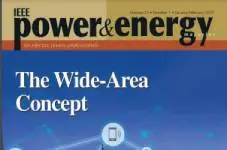-
Members: FreeSYSC
IEEE Members: Free
Non-members: FreeLength: 00:51:46
16 May 2024
The integration of renewable energy sources into the current energy infrastructure has been driven by the growing global need for clean and sustainable energy solutions. An extensive analysis of the Techno-Economic Analysis (TEA) and Energy Management (EM) of Renewable Energy-Based Systems is required to achieve sustainable energy system. The aim is to evaluate the practicality, financial sustainability, and efficient functioning of these systems in various settings. when assessing the cost-effectiveness of implementing renewable energy technology, the TEA component takes into account several variables, including the initial outlay, ongoing maintenance and operating expenses, and possible financial gains. To establish reliable, scalable, robust and data-driven decision making tool in techno-economic planning, a smart framework is proposed to quantify the effects of solar power uncertainties, assess hourly electric vehicle (EV) charging profile, analyze probabilistic reliability and obtain optimal financial decision by solving bi-level programming model using meta-heuristics algorithms. During the preliminary stage, the potential effects of seasonal and climatic variations on solar radiation are quantified through nine distinct probabilistic classifiers trained using support vector classification approach. It serves as a data driven scenario generation tool for robust exploration of bi-level decision making process.


